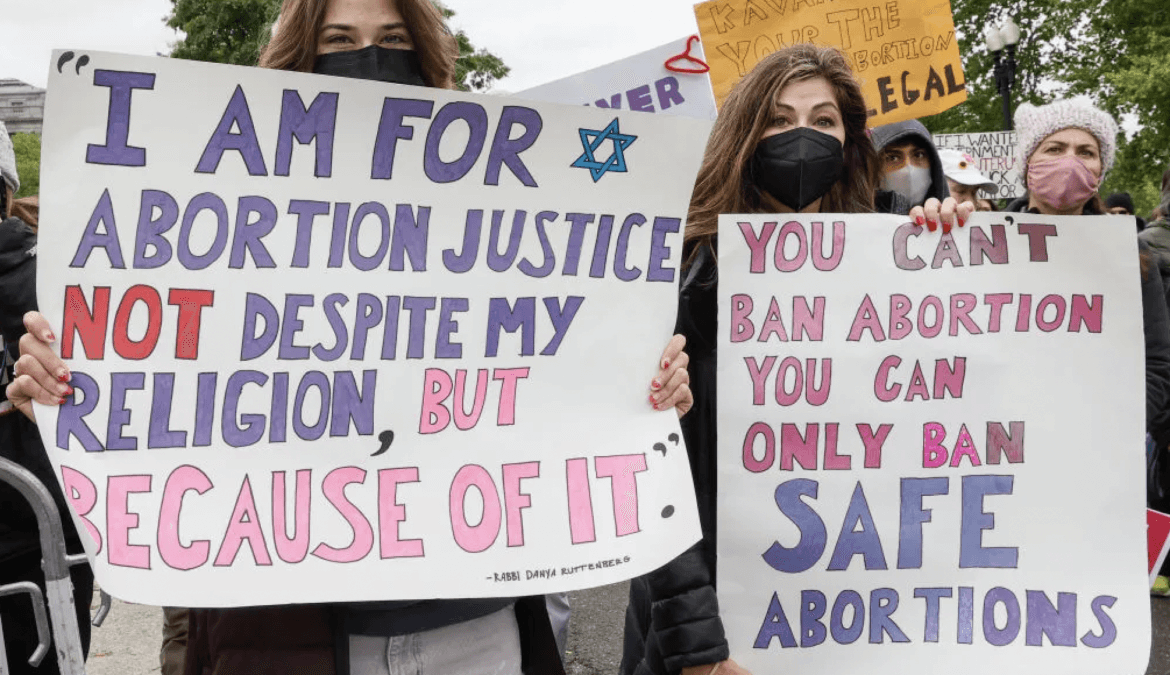The judicial responses to the oral arguments in the US Supreme Court case FDA v. Alliance for Hippocratic Medicine heard Tuesday were, to put it mildly, “curious” — And you have every reason to be suspicious.
After all, this was the first abortion-related SCOTUS hearing since the overturning of Roe v. Wade and the decision could decimate access to medication abortion nationwide — a thought that you would think would make these extremist judges salivate.
But yet at least 4 of the 6-judge zealot majority that overturned Roe v. Wade were “skeptical” of the plaintiffs’ arguments. Really??
How is that possible? This is the radically right-wing Court that overturned 49 years of precedent when it did away with Roe v. Wade — and has a record of decisions showing they’re beholding to a MAGA agenda and driven by Christian extremism.
Could it be that these 6 Republican-appointed justices are reading the political tea leaves just like you and me?
— 69%+ Americans support abortion rights, the largest percentage ever,
— 64% of Americans – nearly two in three – oppose a law which bans access to a medication abortion.
— Abortion rights have WON in EVERY election where it’s been on the ballot since Roe v. Wade was overturned.
— Even in bright red Alabama, a Democrat running on abortion rights just won on Tuesday. She even made a commercial about her own abortion story.
The message is clear: abortion remains a winning issue, even in the deep South.
Abortion is likely to be on the ballot in 11 states in November, driving up voter turnout in a presidential election year.
This is NOT a reality that these 6 Supreme Court zealots want to advance. Better to put the mifepristone decision off until after the November 2024 elections.
How? If the Supreme Court decides— in its decision due in June 2024 — to limit the FDA approval of mifepristone in any way, the 2024 election impact would be swift.
Therefore, the right-wing majority zeroed in on the argument of “standing”. Do the plaintiffs have standing to bring this case? In other words, are they personally impacted so that they can challenge the FDA?
This simply kicks the can down the road until after the election in November.
This radical Court has already handed Democrats several elections because they overturned Roe v Wade. They don’t want to hand the Democrats the 2024 elections by overturning the FDA approval of medication abortion.
The 6-judge zealot Republican majority can decide that the plaintiffs did not have standing which would allow the anti-choice forces to resurrect the case after the elections with new plaintiffs – thereby opening the door again to outlawing medication abortion and undermining the authority of the FDA.
They will wait. After all, this is politics and they’re not going anywhere.
And they might use the Comstock Act to do it. Both extremist judges Alito and Thomas already appeared to support the argument that the mailing of medication abortion is violating the Comstock Act — a law passed by Congress in 1873 that makes it illegal to use the mail for transporting any “obscene, lewd, or lascivious book, pamphlet, picture, paper, print, or other publication of an indecent character, or any article or thing designed or intended for the prevention of conception or procuring of abortion.”



